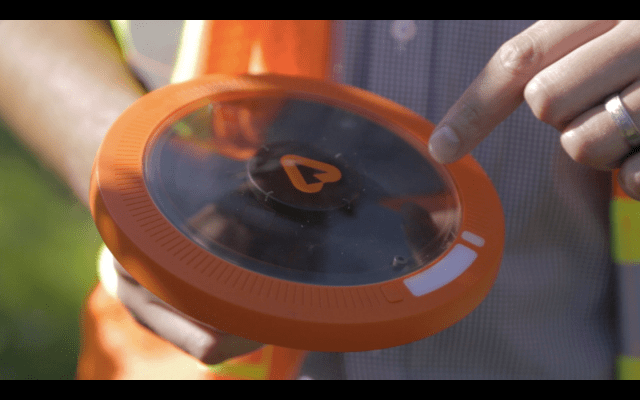Arable has raised $4.25 million for solar-powered sensors and software to help farmers produce more food with fewer resources, and more accurately predict their yields. Middleland Capital and S2G Ventures led the Series A investment in Arable, joined by Princeton, New Jersey-based Chase Field, SparkLabs and Cantos VC.
Believe it or not, farmers in the U.S. have faced a labor shortage for years. U.S. citizens aren’t drawn to agriculture the way they were in previous generations, and everything from a complex visa program to anti-immigrant hate groups keep people from coming here to join the agricultural work force. The labor trend has pushed farmers to automate some of the tasks done by agronomists and field workers in the past, using software, robotics and IoT devices like Arable’s.
Arable’s sensors constantly gather data about plant health, density, light and weather. The company boasts that they precisely measure more than 40 different, relevant data types, a more comprehensive amount than other IoT “smart farming” devices that tend to focus on just one issue in the field, like irrigation or soil tension.
It’s not necessary to send people walking across acres as often if you have a machine eye on the field. And with more accurate forecasting, which is possible by collecting and analyzing that data, farms aren’t as likely to over- or under-staff their operations as harvest approaches.
Farmers’ uptake of technology is also driven by the rising cost of land, supplies (like seeds or fertilizer) and water. “Smart farming” and “precision agriculture” let farmers make decisions about what needs tweaking in the field before it’s too late, reigning in irrigation where sensors can tell that conditions are humid enough, for example, or working to connect with more food producers or other buyers if they are about to deliver a bumper crop.
Arable CEO Adam Wolf said his company’s Arable Mark (formerly known as the Pulsepod) and Arable Insights platform are valuable across different types of farms. The data also becomes valuable to food buyers, not just farmers.
Wolf said, “The farmer wants to sell. The processor wants to distribute. The grocer wants to buy it. Nobody wants a deal not to go through. We are in a position to gather and analyze more data than anyone. We can see things in the field that you’ve never witnessed before, like the onset of blooms or development of clusters and coloring. This amounts to helping all parties reduce supply chain risk.”
Asked if he’s worried farming will go inside, as “vertical farms” and technology to control them are rapidly advancing, Wolf said, “As far as I’m concerned, you don’t get any cheaper than the sun. And you can’t beat 10 acres in Salinas.” Arable intends to use its Series A capital for hiring, especially more scientists and engineers, and to ramp up production of its sensors.
